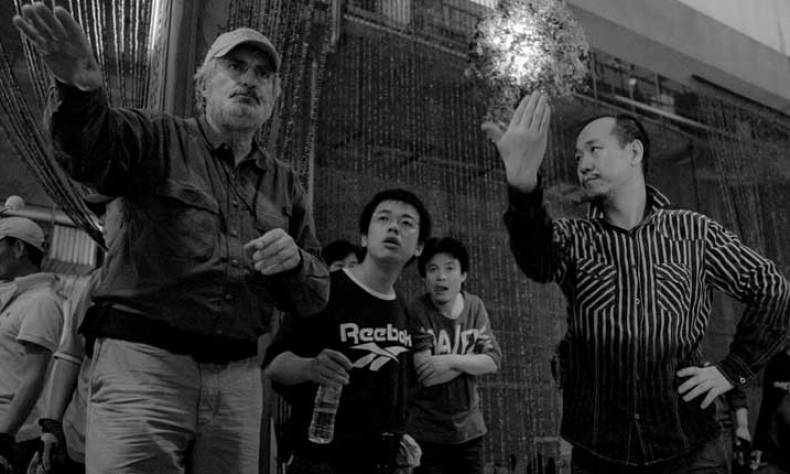
Jin: Market Forces to Save Chinese Culture Abroad
In what has been a tough, somewhat awkward realization, China is just now beginning to recognize that its attempts to export its culture abroad and become a serious soft power player have fallen well below expectations. In 2011, the Chinese government announced a series of nationwide policies to promote the development of Chinese culture, in particular emphasizing the promotion of soft power products overseas, yet despite the recent abundance of Chinese cultural works exported throughout the world, the overall influence and impact of these cultural exports has been questionable at best.
Chinese director Jin Tiemu is an artist that has had his work praised both at home and abroad, and he feels that the cultural differences between China and Western countries is one of the greatest barriers that exported Chinese culture needs to overcome. Jin believes that the issue is unavoidable but easy to address.
“It is pretty obvious that Western people have their own preferences for cultural works. In order to reach a different audience, changes in form and delivery are understandable as long as the core idea of the work remains in place,” Jin said.
Jin feels that such a compromise of operability is likely the only way for China’s cultural works to be exported successfully, and that the lack of compromise is the reason why most previous cultural exports have failed to overcome the considerable cultural barriers in place. Jin further believes that most Chinese cultural works have only confused Western audiences, leading Western producers to use Chinese cultural offerings as inspiration for drastically different works of art, often losing the cultural elements central to the original works.
Having an inter-disciplinary educational background in both English linguistics and film studies, Jin is well-suited to identify the often multifaceted aspects of cross-cultural identification and cultural expression. While Jin’s skills and understanding of different cultures is a plus, the director fully understands the power of market forces. After achieving both critical and commercial success for earlier documentaries that included The Revival of the Legion and The Old Summer Palace, Jin was able to forge some international distribution channels without government assistance. These channels helped to make Jin’s works more successful than cultural projects from state-owned soft power factories.
“During the international cooperation of film production, there is a mutual zone for Chinese directors and the western teams if both sides are bound together as stakeholders. My experience proves it to be so.”
When Jin’s team participated in such international cooperation not only as a content supplier but also as an investor, it was then easier for them to make demands regarding what aspect of Chinese culture they truly wanted to present. At the same time, it was easier for the Western partners to select the appropriate way to present the idea to Western audiences.
“In one of my previous projects, I tried to explain the importance of the Yellow River to Chinese people, and my co-production partner quickly understood that it is somehow akin to the Mississippi River in American culture. The way of expression might be different, but the idea remains the same” Jin said.
However, with regards to the future of Chinese culture abroad, Jin Tiemu and his team’s efforts are still far from adequate. “Now, as a manager, I am looking for more talented, capable, and well-trained young people to join us, but it is hard for film companies like us to find such employees. The government, the education system, and society as a whole have a lot of work to do” said Jin, reiterating that the way forward for Chinese culture abroad was never going to be a short journey to success.
(Based on the interview with Director Jin Tiemu on 30th Sept. in Beijing.)
By Wang Hai
 Facebook
Facebook
 Twitter
Twitter
 Linkedin
Linkedin
 Google +
Google +











Comments are closed.